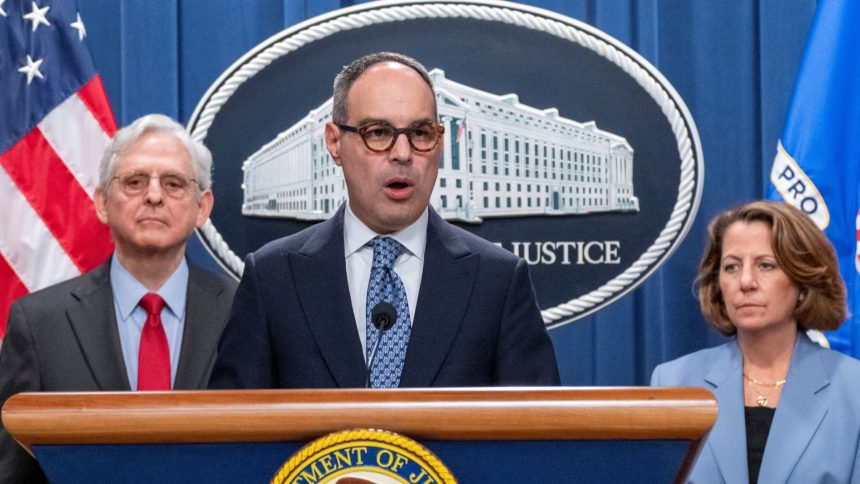The U.S. Department of Justice late Tuesday made recommendations for Google’s search engine business practices, indicating that it was considering a possible breakup of the tech giant as an antitrust remedy.
The department said in a filing that the remedies necessary to “prevent and restrain monopoly maintenance could include contract requirements and prohibitions; non-discrimination product requirements; data and interoperability requirements; and structural requirements.”
The DOJ also said it was “considering behavioral and structural remedies that would prevent Google from using products such as Chrome, Play, and Android to advantage Google search and Google search-related products and features — including emerging search access points and features, such as artificial intelligence — over rivals or new entrants.”
In August, a U.S. judge ruled that Google holds a monopoly in the search market after the landmark case from the government filed in 2020, alleged that Google has kept its share of the general search market by creating strong barriers to entry and a feedback loop that sustained its dominance. The court found that Google violated Section 2 of the Sherman Act, which outlaws monopolies.
Kent Walker, Google’s president of global affairs, said the company plans to appeal the ruling and highlighted the court’s emphasis on the high quality of Google’s search products, which the judge also noted in his ruling.
The most likely outcome, according to some legal experts, is that the court will ask Google to do away with certain exclusive agreements such that it has with Apple. They also believed the court may suggest that Google make it easier for users to try other search engines. However, a break-up seemed less likely, the experts said at the time.
In the second quarter, “Google Search & Other” accounted for $48.5 billion in revenue, or 57% of Alphabet’s total revenue. The company holds 90% of search market share.
The recommendations are still far from being decided.
Judge Mehta said he’ll aim to rule on the remedies by August 2025 and Google will likely appeal, drawing out any final impact potentially years. In a separate antitrust case this week, a U.S. judge issued a permanent injunction that will force Google to offer alternatives to its Google Play store for downloading apps on Android phones.
A judge just wrapped a trial for a separate antitrust case brought on by the DOJ — though this one homed in on Google’s ad tech business.
This is breaking news. Please check back for updates.
Read the full article here




